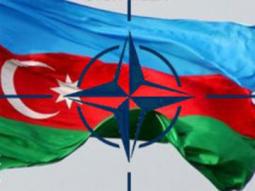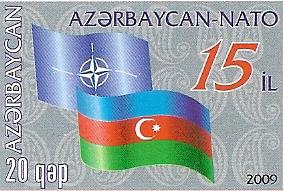 On Thursday, the US Ambassador to Azerbaijan Matthew Bryza has completed his diplomatic mission to the country. Speaking at a press conference held to review his year in office, Bryza stressed the work done by the embassy “in establishing strategic partnership and friendship between the US and Azerbaijan,” describing security, energy and domestic reforms as the most strategically interesting areas in bilateral relations.
On Thursday, the US Ambassador to Azerbaijan Matthew Bryza has completed his diplomatic mission to the country. Speaking at a press conference held to review his year in office, Bryza stressed the work done by the embassy “in establishing strategic partnership and friendship between the US and Azerbaijan,” describing security, energy and domestic reforms as the most strategically interesting areas in bilateral relations.Commenting on a report that Azerbaijan has not given consent for NATO’s Airborne Warning and Control System (AWACS) to use its air space, the US envoy said that the information was not quite right. “I don’t think that permission was not given, because, as far I know, the question was about reconsideration by the government of Azerbaijan of the procedure for flights via the country’s territory,” Bryza said, reminding that at least 5,000 US planes use the Azerbaijani air corridor every year to deliver cargo to Afghanistan. During a recent visit to Azerbaijan, Commander of the U.S. Transportation Command General William Fraser actually thanked the country for its role in providing transportation for US and NATO troops in Afghanistan.
The increasing importance of Azerbaijan as both a vital link in Afghanistan’s supply chain and the only alternative route for transporting Caspian oil and gas to Europe bypassing Russia and Iran, arises the question whether Baku should join NATO. Although Azerbaijan will not likely enter the Alliance in the short-term, one thing is certain: if three years ago the perception was that Georgia and Ukraine should integrate into NATO first and Azerbaijan should eventually follow, after the 2008 South Ossetian war and the election of Viktor Yanukovych as president of Ukraine in 2009, Baku now stands a better chance of gaining membership in the near future than either Tbilisi or Kiev.
2009 STAMP COMMEMORATING 15 YEARS OF AZERBAIJAN-NATO COOPERATION
 A step in this direction has been undertaken with the endorsement of the third stage of the Individual Partnership Action Plan, which covers cooperation within Baku and NATO in 2012-2013. The document, which follows the successful implementation of the first and the second phases of Azerbaijan’s cooperation with the Alliance within the Individual Partnership Action Plan signed in 2005, consists of four sections covering politics and security, defense and military issues, public information, civil emergency planning, science and environmental issues, administrative issues, security of information, resources and legal issues.
A step in this direction has been undertaken with the endorsement of the third stage of the Individual Partnership Action Plan, which covers cooperation within Baku and NATO in 2012-2013. The document, which follows the successful implementation of the first and the second phases of Azerbaijan’s cooperation with the Alliance within the Individual Partnership Action Plan signed in 2005, consists of four sections covering politics and security, defense and military issues, public information, civil emergency planning, science and environmental issues, administrative issues, security of information, resources and legal issues. Unlike Ukraine and Georgia, whose candidacies are affected by internal turmoil, Azerbaijan appears as a bastion of stability. Economically independent from Russia thanks to its huge oil and gas reserves, the country has close cultural and political ties with one of the most important NATO members, Turkey, and borders both the Russian republic of Dagestan and Iran. For this reason, Azerbaijan’s adhesion to NATO would not only provide the Alliance with an outlet to the Caspian Sea, that is the most important geopolitical theater in the current century, but would also increase Western pressure on both Moscow and Tehran.
In a game of moves and countermoves as that to which we are seeing for years on the Eurasian chessboard, the “conquest” of Azerbaijan would also be the geopolitical response of the West to the loss of South Ossetia and Abkhazia. Nevertheless, as in 2008, Russia may decide to anticipate NATO by recognizing the Azerbaijani breakaway republic of Nagorno-Karabakh. The sovereign status of the Nagorno-Karabakh Republic is currently not recognized by any state, including Armenia. In case both Yerevan and Moscow, which are linked by a strategic partnership, decide to recognize Stepanakert, Azerbaijan would not be able to regain the territory. In that case, any possible Azerbaijani adhesion to NATO would be practically impossible, and Russia would emerge strengthened from the “neutralization” of its southern neighbor.
Perhaps then, the West would fully realize what was Vladimir Putin referring to when, during a meeting of presidents from the Commonwealth of Independent States in Moscow, he talked about the consequences of recognizing Kosovo’s independence from Serbia. For the Russian leader, the Kosovo precedent was “breaking open the entire system of international relations that have prevailed not just for decades but for centuries,” bringing on itself “an entire chain of unforeseen consequences.” Talking about the mistake done by those governments who had recognized Pristina, Putin released a prophetic warning by stating that “in the end, this is a stick with two ends and that other end will come back to knock them on the head someday.” The independence of South Ossetia and Abkhazia following the 2008 Russo-Georgian war was the first knock: will the recognition of Nagorno-Karabakh be the second one?

